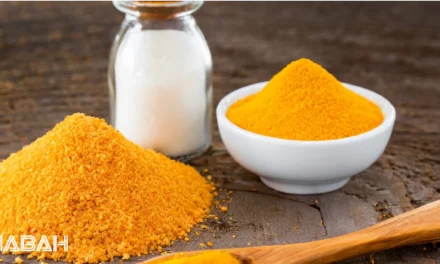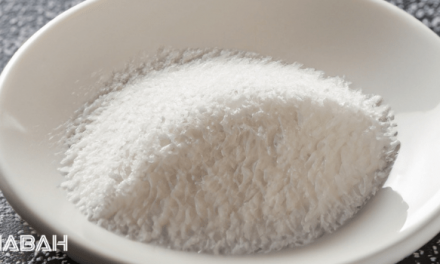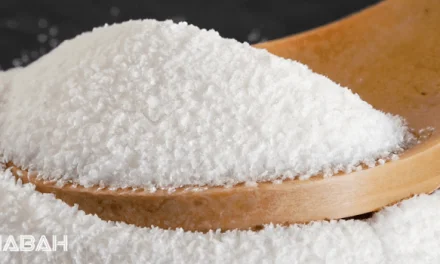As a Muslim consumer, it is crucial to be well-informed about the halal and haram status of various food ingredients. In this comprehensive guide, we delve into the often misunderstood topic of mono and diglycerides, shedding light on their sources, production methods, and the diverse opinions of scholars, empowering you to make informed choices about the foods you consume.
Navigating the Halal Minefield of Food Additives
Monoglycerides are a class of food additives used as emulsifiers in products like baked goods, ice cream, and peanut butter. They are composed of glycerol and fatty acids, and help prevent fats and oils from separating.
There are differing opinions on whether monoglycerides are permissible to consume for Muslims who follow halal dietary restrictions:
-
Halal refers to foods that are allowed under Islamic law. The criteria include:
- Derived from permissible animals slaughtered according to zabihah guidelines
- Free of pork, alcohol and other intoxicants
- Processed and prepared per sharia principles
-
The status of many modern food additives is debated, including monoglycerides.
The evidence around monoglycerides can be summarized as:
| Source | Status | Rationale |
|---|---|---|
| Majority opinion | Halal | Chemical change into a different substance. Not considered animal fat anymore. |
| Minority opinion | Haram | Traces of animal fat remain, so better to avoid doubt. |
“Monoglycerides and diglycerides are emulsifiers made from glycerol and animal fat or vegetable oil. If produced from vegetable oil or from halal animal fat then it is Halal.”
This article will analyze the evidence around monoglycerides and discuss the implications for Muslim consumers.
Status of Monoglycerides in Islamic Law
There are two main opinions on the permissibility of monoglycerides according to Islamic law:
Majority Opinion: Halal
The majority of scholars consider monoglycerides to be halal. Reasons include:
-
Monoglycerides undergo a chemical transformation during processing. They are no longer considered animal fat.
-
The origin substance (animal fat or vegetable oil) changes into a completely different substance.
“Changing a substance into another substance different in characteristics makes the new substance permissible.”
- Glycerol and fatty acids recombine into a new compound via esterification. It is not just a mixture.
“A chemical change occurs turning the original glyceride into a new molecule. This new molecule is not considered impure or haram.”
Minority Opinion: Haram
A minority of scholars argue monoglycerides should be avoided:
-
Trace amounts of animal fat remain in the end product. Better to avoid doubtful things.
-
The origin and production process may still influence the ruling.
“Mono- and diglycerides… might contain minute amounts of actual fat from the animal source. It would be best to avoid such doubtful things.”
- Some producers do not specify fat sources, leaving doubt.
Sources of Monoglycerides
Monoglycerides can come from various sources, which influences the halal status:
Plant-based
-
Derived from vegetable oils like soybean, palm, or canola
-
Considered halal by all schools of thought
Animal-based
- Derived from animal fats
-
Difference of opinion on permissibility:
-
If from a halal slaughtered animal, may be permissible
“Monoglycerides from beef or mutton fat from a halal source is considered halal.” – IFANCA
-
If from pork sources, it would be haram
“Monoglycerides and Diglycerides…derived from pork fat would not be permissible for Muslims.” – IFANCA
-
Chemically Produced
-
Synthesized from glycerol and fatty acids
-
Glycerol can come from plant or animal sources
-
Likely halal since chemical process transforms the substances
“Chemically produced Monoglycerides and Diglycerides should be considered halal.” – IFANCA
Recommendations for Consumers
Given the complexities around monoglyceride sources and production, here are some recommendations for Muslim consumers:
-
Look for halal certification from recognized bodies:
“One should look for Halal certification by accredited agencies on the foods containing these additives.” – IFANCA
-
Check ingredient listings carefully:
-
Avoid products listing “animal fat”
-
Be cautious of vague ingredients like “vegetable fat” that could potentially include animal sources
-
-
When in doubt, avoid the product or consult scholars:
“When a Muslim consumer does not know the source of these chemicals, one should avoid products containing them.” – IFANCA
-
Keep intention and conscience in mind:
“If one errs, let it be on the side of caution. The Prophet Muhammed (pbuh) said, ‘Leave that which causes you doubt for that which does not cause you doubt.'”
Following these guidelines can help provide assurance for Muslim consumers about monoglycerides and other questionable ingredients.
FAQ – Are Monoglycerides Halal
What are monoglycerides?
Monoglycerides are a type of fatty acid ester, specifically glycerol esters of fatty acids. They are commonly used as emulsifiers in food products to help disperse oil and water.
Are monoglycerides halal?
Monoglycerides can be halal if they are derived from permissible sources such as vegetable oils. However, if they are derived from animal sources or non-halal ingredients, they would be considered haram (forbidden).
Can monoglycerides be derived from animal sources?
Yes, monoglycerides can be derived from animal sources. If the source of monoglycerides is not specified and it is known to be derived from animal fats or oils, it would be considered non-halal.
Are monoglycerides commonly used as emulsifiers?
Yes, monoglycerides are widely used as emulsifiers in the food industry. They help stabilize emulsions and prevent the separation of oil and water in various food products.
What is the difference between mono and diglycerides?
Mono and diglycerides are similar in chemical structure but differ in the number of fatty acids attached. Monoglycerides have one fatty acid esterified to a glycerol molecule, while diglycerides have two fatty acids esterified.
Are diglycerides halal?
Similarly to monoglycerides, diglycerides can be halal if they are derived from permissible sources. It is important to check the source of diglycerides to ensure they comply with halal requirements.
Can mono and diglycerides be halal?
Yes, mono and diglycerides can be halal if they are derived from halal sources, such as vegetable oils. Halal certification authorities, such as IFANCA, can provide information on specific products or brands.
Are mono and diglycerides halal or haram?
Whether mono and diglycerides are halal or haram depends on their source. If they are derived from permissible sources, they would be considered halal. However, if derived from non-halal sources, they would be considered haram.
What is E471?
E471 is the European Union code for mono and diglycer
Conclusion
In summary, there are differing perspectives among Islamic scholars regarding the halal status of monoglycerides:
-
The majority opinion is that they are halal, given the chemical transformation that occurs during processing.
-
However, a minority view monoglycerides as doubtful due to potential traces of animal fat.
Consumers should be cautious and check for halal certification, ingredient sources, and consult scholars when uncertain. As one source advises:
“Ask the manufacturer of foods containing these additives to provide information demonstrating their ingredients are from halal or permitted sources.” – IFANCA
More research is needed by Muslim scientists and regulatory bodies as new products emerge. Standards must keep pace with changing technology and industry practices.
Above all, intention weighs greatly in matters of diet. As the Prophet Muhammed (pbuh) صلى الله عليه وسلم said:
“Acts are but by intentions, and every person shall have what he intended.” [Bukhari and Muslim]
By better understanding these issues, Muslims can make informed decisions about their diets in line with Qur’anic principles of moderation, compassion and wisdom.





